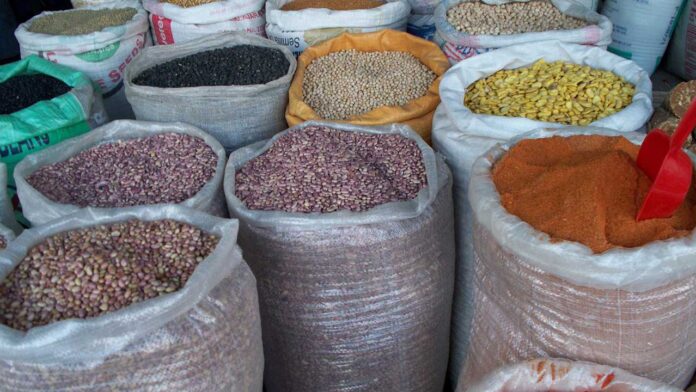By Milcah Tanimu
The Nigerian Association of Chambers of Commerce, Industry, Mines, and Agriculture (NACCIMA) has praised the President Bola Tinubu-led administration for implementing a 150-day duty-free window for the importation of rice, maize, wheat, and other cereals. This policy, announced by the Minister of Agriculture and Food Security on Monday, aims to alleviate economic hardship and combat high food inflation.
NACCIMA National President Dele Oye described the federal government’s move as a decisive and appropriate step towards addressing the current food inflation in the country. He emphasized that this policy would lower food prices in the market and enhance the purchasing power of households, providing much-needed relief to millions.
In a statement, Oye said, “On behalf of NACCIMA, we commend the federal government’s decisive action to suspend duties, tariffs, and taxes on the importation of key food commodities. This initiative represents a significant step towards mitigating the severe food inflation currently impacting Nigerian households.”
He continued, “The 150-day duty-free import window for essential items such as maize, husked brown rice, wheat, and cowpeas is a commendable move that will likely stabilize food prices and provide much-needed relief to millions of Nigerians. By addressing the multiple factors contributing to rising food prices, including infrastructural challenges and market profiteering, this policy demonstrates a comprehensive approach to ensuring food affordability.”
NACCIMA also advised the federal government to remain vigilant in implementing the policy. Oye expressed concerns that importers and foreign companies might exploit the policy, turning Nigeria into a dumping ground. He stressed the importance of protecting local investors and farmers.
“While we applaud these measures, it is imperative that the government immediately engages with stakeholders across the agricultural value chain. This engagement is crucial to ensure that Nigeria is not turned into a dumping ground for commodities where we already have reasonable self-sufficiency. Protecting local investments and sustaining the growth of our agricultural sector must remain a priority,” Oye added.
NACCIMA affirmed its readiness to support the federal government in ensuring that the policy’s implementation is balanced to protect local farmers and investors. “NACCIMA stands ready to support the government in these efforts, ensuring that the strategic importation of food commodities complements rather than undermines our domestic agricultural production. Together, we can secure a balanced approach that safeguards both the immediate needs of our citizens and the long-term sustainability of our agricultural economy,” Oye said.

